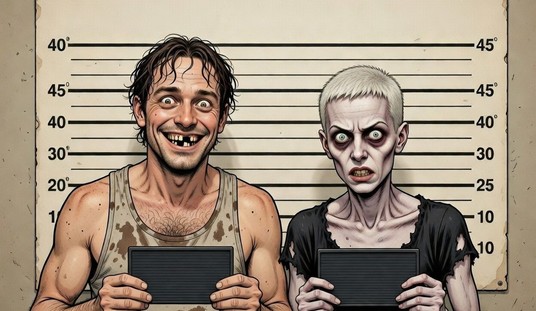Back in my day–and would you kindly do me a favor, sport, and get off my lawn–I was a Christian rock super-nerd. I knew all the bands, eagerly awaited all of their new albums, bought them on cassette, wore them out (or found them melted in the passenger seat of my parents’ car) and bought them again, saw them when they came to town, and repeated the cycle when they hinted there might be a new release on the way. I read every article about them all in CCM, learned all about the bands and what made them tick, knew the difference between Sparrow and Word records, all of it. When the 77s signed with Island Records, the home of U2, I thought we’d see Mike Roe and the boys crack the top 10. They did well with “The Lust, the Flesh, the Eyes, and the Pride of Life,” but radio DJs found it too hard to say.
Whether I was born or born again that way we’ll never know. But it was Texas just south of Dallas in the 1980s and it was our culture. Actually, for those days I was something of a rebel, a Baptist bad boy, because I eschewed the likes of Steve Green and Sandi Patty for the heavy stuff.
What heavy stuff, you probably didn’t ask? Well, Steve Taylor for one. I’ll get to him in a bit. White Heart. Daniel Band. Vector. Prodigal. Daniel Amos. Bloodgood. Barnabas. Servant. Crumbacher. I listened to all of them. Even One Bad Pig.
From the mid-1970s to the mid-1990s, a whole bunch of bands followed after the 60s Jesus Music phenomenon led by the late Larry Norman and blazed some trails. Some of them were interesting and creative trails that are not yet finished. Some we’ve long forgotten, and nature has reclaimed them like undergrowth on a jungle temple. Some of them wrote about issues years or decades ahead of their time, some went all the way from Eagles-style country to experimental, some faded away, and some covered Led Zeppelin covering Blind Willie Johnson and are still cranking out good stuff.
Stryper, for one, broke through in that era and they’re still going strong. You’ve heard of them, everyone has. Here’s “Do Unto Others,” which they released in 2020. They’re back to sporting the yellow and black and still flying with the harmonic riffs. They’ve never sounded better.
It’s hard to believe, but Stryper hit the scene to great controversy in 1983 with The Yellow and Black Attack. By then, several Christian singers and bands across several genres had been around for a decade or more, making noise and paving the way.
Here are a few of the Christian bands and singers from that time you may have never heard of, or already forgotten about, but who made a mark, covered a big issue, or found some way to be interesting, because they were or still are good.
Resurrection Band
Rez Band’s bio spans a life from the battles of Vietnam to a gritty street ministry in Chicago. They’ve never taken the easy way and they suffered through strong criticism for their look and sound when they first emerged with 1978’s Awaiting Your Reply. Lead guitarist and singer Glenn Kaiser and his wife Wendi were the heart of that band, and they could effortlessly play and wail as well as anyone in rock. “Love Comes Down” is Rez at hurricane force.
“Area 312” and “Military Man” are still killer Rez tracks. I saw them live in a tiny arena in Dallas in 1984 or ’85 and my ears rang for weeks. It was totally worth it.
Keith Green
Earlier I mentioned that the more mainstream Christian heavyweights were never my thing. I just couldn’t get into slower-paced crooners, at least not until Michael Card came along.
The late Keith Green was different. Rockers like me and the mainstream fans all loved this guy. He was the Billy Joel and Elton John of early Christian rock, and pieces such as “No One Believes In Me Anymore” still stand out. Green had a sense of humor, a way with words, and could pack C.S. Lewis-level apologetics between piano riffs like no one else before or since.
Keith Green was a child prodigy who could have gone in any direction musically. After years of drugs and wandering, he pursued his faith through music until he died in a plane crash in 1982. Here he is on TV at 11 years old. Skip ahead to 5:30 to watch him play and sing like a veteran star. Again, he’s 11.
David Meece was another child prodigy who went for Christian music in the same era. I saw him live in concert twice, one of which I booked and promoted. He’s one of the most genuine people you’ll ever meet, and as funny off stage as he was on.
Lost Dogs
Lost Dogs isn’t really one band, but the amalgamation of a bunch of bands. They first turned up in the age of the Traveling Wilburys and The Highwaymen, two supergroups from rock and country, respectively. The Lost Dogs united Daniel Amos, the 77s, Adam Again, and The Choir. Their leaders, mad genius Terry Scott Taylor, Mike Roe, the late Gene Eugene, and Derri Daugherty, respectively, came up with a folk-rock-blues sound that’s still unique in Christian music. “Reasonable Service” may not be their best song (that might be “Scenic Routes” or, I don’t know, five or 10 others), but it has a great sing-a-long quality and some deep theology.
“Breathe Deep” is another strong Dylan-esque LD tune.
Daniel Amos/DA/da
Daniel Amos is very difficult to sum up. Terry Taylor has led this band from a country sound in the 1970s with Shotgun Angel through New Wave (Alarma, Doppelganger, and Vox Humana) in the early 80s to experimental in the mid-80s (Fearful Symmetry and Darn Floor, Big Bite) to rock later on. All the different sounds in the chameleon act have worked, and they’ve tackled just about every possible topic in one way or another. Try me on this: who else sings about poet/artist William Blake and jet pack travel on one record? In 1991, they released Kalhoun. The title cut mocks meaningless buzzwords and the people who turn them into unquestionable pronouncements from on high. Seems relevant to our day.
Daniel Amos is probably best known not for any of their country, experimental, or rock songs, but for “Soon,” which got a ton of airplay on Christian radio in the early 80s.
Steve Taylor
Steve Taylor was a youth minister who started writing songs for his church youth group. He had a knack for making words that shouldn’t rhyme live together and pretty soon he was stealing the show at Christian music festivals and being written up in Rolling Stone. He has put out so many songs across so many decades in so many different sounds — and under different bands, such as Sixpence None the Richer (he wrote and produced their massive hit “Kiss Me“) and Newsboys, not to mention Chagall Guevara and Steve Taylor and the Perfect Foil — that his best is very hard to pin down (so is his worst, for whatever that’s worth). “I Want to Be a Clone” tackled being a maverick in the face of conformist culture. “Bad Rap” was in fact a bad rap that skillfully skewered the green pro-whale/anti-baby left. “You save the whales, you save the seals, you save whatever’s cute and squeals, but you kill that thing that’s in the womb, would not want no baby boom.”
I’ll go with “We Don’t Need No Color Code” from Meltdown (1984) because it tackled a huge issue, racism, from the Christian perspective decades ago and with a moral fire that few can match. Also, with a borrowed Bo Diddley riff. That whole album is strong, from the title song to “Hero” to “Sin for a Season.” “On the Fritz” from that album is also a sneaky beast of a song, as is “I Just Wanna Know.” His I Predict 1990 album cover got him accused of dabbling in Tarot because that’s the kind of thing we argued about in Baptist churches in 1989. Which was too bad, as it’s a great album too. He was actually mocking false prophets and going for a Jim Morrison vibe with that cover, for what it’s worth.
“Jesus Is for Losers.” Steve Taylor said so.
Randy Stonehill
Say “Shut de do” around a 1980s Christian and they’ll reflexively reply “Keep out de debil.” It’s part of our wiring thanks to Randy Stonehill. By the time he put that song on a record in 1983 Stonehill had already been in music for more than a decade. He’d had a brief role in The Blob movie too. Stylistically Stonehill is somewhere near Randy Newman. He’s still putting out music and released The Lost Art of Listening in late 2020. I never liked “Shut De Do” as much as “Big Ideas (In a Shrinking World).” But I was weird.
Petra
Petra means “rock,” and strangely enough that wasn’t the title of their first album. They did get around to using that, but not before they covered “God Gave Rock N Roll To You” years before KISS did it for Bill and Ted’s Bogus Journey, and not before they released Not of This World — the first Christian rock album I ever heard. It still holds up, but the brief controversy that greeted “Grave Robber” hasn’t. Backmasking was a big, scary deal in those days, and Petra was accused of it. On “Judas’ Kiss” (More Power to Ya) they leaned into the controversy with a backward recording of them saying…something…ahead of the first guitar riff.
Spoiler: The backward recording says “What are you looking for the devil for, when you ought to be looking for the Lord?”
The 77s
I’ve already mentioned them twice, so why not three times? Michael Roe actually did a solo album called The Boat Ashore, but before he did that (and after), he led the controversial Christian group The 77s. They did an album called Pray Naked, which earned them bans everywhere. Their first album, Ping Pong Over the Abyss (1983), had a tight punk-New Wave sound that still works while tackling all sorts of early 80s issues. They grew the sound a bit for All Fall Down a year later, and turned out this haunting song, “Ba Ba Ba Ba.”
It’s about people who blindly follow leaders who may not tell the truth or have their best interests in mind. Hm.









Join the conversation as a VIP Member